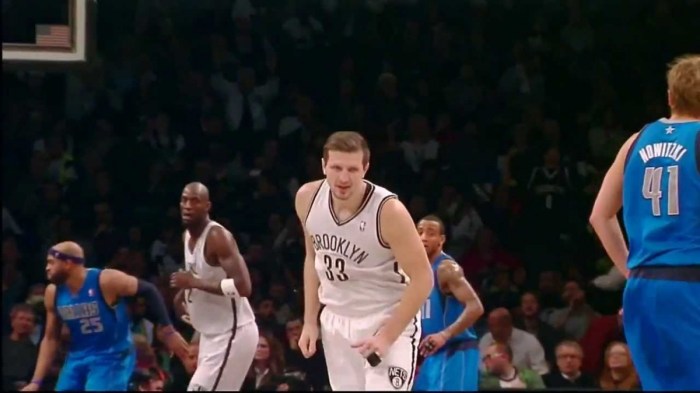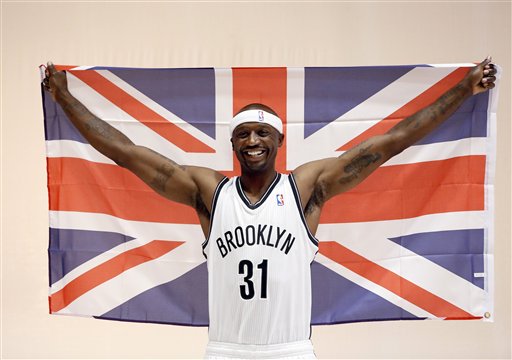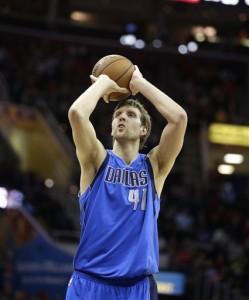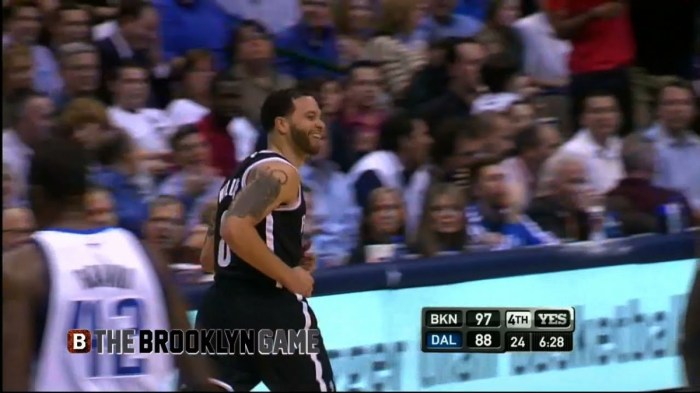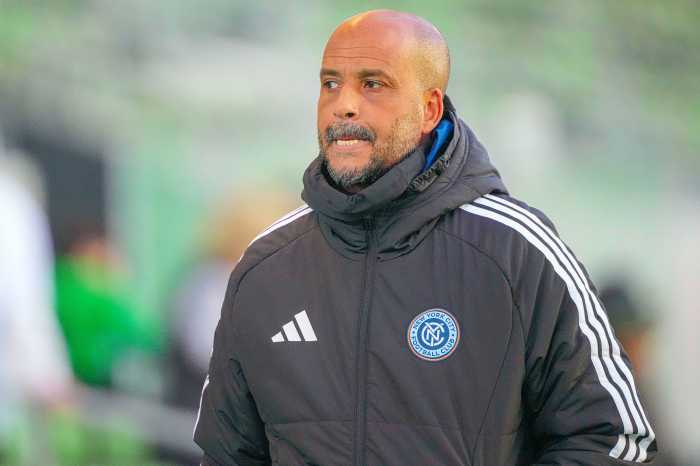The New Jersey Nets might not have won the offseason sweepstakes this summer in falling short of signing LeBron James, Dwyane Wade, Chris Bosh, Dirk Nowitzki, Amare Stoudemire, Carlos Boozer, Joe Johnson, and Rudy Gay. But there’s no doubt they wound up with one whale of a consolation prize.
He’s a great basketball mind, a born leader, and a sensational decision maker. Best of all, he didn’t cost the Nets a cent of their precious salary-cap space. Avery Johnson might not be taking game-winning shots in the final seconds, but his impact on the franchise cannot be overemphasized.
Johnson was in an enviable position before coming to the Nets. He had a cushy NBA analyst job with ESPN, he had coached the Dallas Mavericks to the NBA Finals, and, in case you forgot, he had the highest winning percentage of any coach — better than Pat Riley’s, better than Phil Jackson’s, better than Red Auerbach’s — in NBA history.
Needless to say, he was in a good spot.
In come the Nets, the ones who finished the 2009-2010 campaign with a 12-70 record good for dead last in the league, looking to plug the gap created after the team fired Lawrence Frank and suffered five months with Kiki Vandeweghe at the helm as interim head coach. There were several suitors, but it was Johnson who ultimately accepted the challenge.
This is not to say that taking on the job was a death sentence. Johnson joined the team at a time when the “It’s All New!” initiative was in full swing. The team had cap space galore to spend on the greatest free-agent crop in a long time, the dispiriting IZOD Center was out of the picture (with the Barclays Center just two years away), and the Nets were looking at the No. 3 pick in the upcoming NBA Draft. And who wouldn’t want to work for playboy Mikhail Prokhorov?
Nevertheless, Johnson knew that, if the team struck out in free agency, he would be in for quite a project. And so they did. That good spot Johnson was in? It just became a little tighter.
He then faced the task of putting together a serviceable NBA team with the offcuts from the previous season’s disaster, a foursome of middling free agents, a few draft picks, and Troy Murphy, who came in via trade.
Really, though, there could not be a more perfect fit for the job than Johnson. What the team required was impeccable organization, unflappable management, and unyielding perseverance. He met the requirements.
Johnson has the reputation of being a hard-nosed disciplinarian; he stacks up to the prototype of a collegiate coach more so than that of an NBA coach, not intimidated by the egos of highly paid athletes. He demands accountability from all of his players and won’t tolerate the slightest bit of detrimental conduct in his locker room. They call him the Little General.
Of all the coaches who claim that the process is more important than the result, Johnson’s one of the few who actually believes it. That’s what Travis Outlaw, Terrence Williams, and Troy Murphy will tell you.
Williams found himself in Johnson’s doghouse for something he didn’t consider very serious — showing up late to a few practices. Unfortunately for Williams, habitual tardiness was more than reason for Johnson take action. Soon enough, Williams had graduated from the doghouse to the D-League and from the D-League to the Rockets. Williams’ talent is undeniable, but Johnson did not hesitate to dispose of him.
But misconduct isn’t the only preoccupation that can get under Johnson’s skin. Outlaw and Murphy have found themselves relegated to the bench at times for falling short of expectations on the court. Outlaw has given up minutes to the likes of Stephen Graham and Quinton Ross, while Murphy has been buried in the depth chart for most of the year behind Kris Humphries and Derrick Favors. It takes some moxie to force your third-highest and highest players, respectively, to take lesser roles on a pretty bad team.
All the while, the groundwork is there for basketball success. Johnson has converted the Nets from a defensive laughingstock into the 12th-best in the league in points allowed, and they aren’t giving up on games like they did last year — not to mention they’ve already won three quarters of the games they did all of last year.
It’s easy to say that you’re focusing on the process when the product is 9-20 and last in its division over a third of the way through the season, but at the end of the day, a coach is evaluated on wins and losses. In a few short months with the Nets, Johnson has already surrendered his No. 1 winning percentage. Is it possible that Johnson’s influence is only appreciable when juxtaposed with Vandeweghe’s ineptitude from last season?
Sure. It’s possible. But it is not yet fair to evaluate Johnson on his performance. There’s still time for him to cultivate the talent necessary to compete in the playoffs before his trial becomes a failure. And there’s a lot on the horizon. Only months after he came aboard, the Nets are front runners to acquire Carmelo Anthony before this February’s trade deadline. No matter your bent on a Favors-for-Anthony swap, the desire that Nets management is exhibiting to improve the team is infinitely more palpable than it was for most of the Ratner era. What does that have to do with Johnson?
He might only be the coach, but some have conjectured that Johnson has a much larger role in the Nets’ front office than apparent — they go so far as to say that Billy King, the team’s new GM, is merely a figurehead and that Johnson is actually running the show. Thought it is unlikely he’s operating in such a full capacity, it isn’t too farfetched to think that he has a hand in some of the decisions above his pay grade.
That said, it’s not the worst scenario in the world to have the guy who is directing your team on the court to have a say in how it comes together off the court — especially for a coach as talented and dedicated as Johnson.
As a vast number of teams over the course of NBA history have demonstrated, stockpiling talent isn’t an instant cure-all that will propel the squad to the NBA Finals. Take the 2008 Boston Celtics, for instance.
They did acquire two immense talents in Kevin Garnett and Ray Allen, but it was the togetherness of the team that won the championship that year. That unit played unfailingly cohesive basketball, squashing opponents with inspired defense on every possession. And it started from a team that was, to say the least, terrible the season before.
Now look at the Nets: they have some of the skeletal parts of a successful NBA team, but they still need to add the muscle before a title is a reality. Say they went through with the Anthony trade, swapping a talented young big man (like Al Jefferson) for one of the league’s best players (in Garnett) and maybe another piece or two. No, the talent wouldn’t be quite at the Celtics’ level, but they’d have enough to make a playoff run.
That’s where Johnson would come in — to transform that playoff team into a Finals team. He’s done it once before, who’s to say he couldn’t do it again? And even if it’s not so simple as making a trade for the Nets to get back to their playoff pedigree, Johnson has the skills to take this team from the ground up — with draft picks, free-agent signings, and practice, practice, practice. Without question, Johnson’s the guy to institute a scheme to turn loose pieces into a competing corps.
The Nets might have deserved the first overall pick in June’s draft after a close-to-historically bad season. They might have deserved more attention from the league’s troupe of free agent superstars. But Avery Johnson’s there. To borrow a line from the Dark Knight, he might not be the hero the Nets deserve, but now he’s the hero the Nets need.












